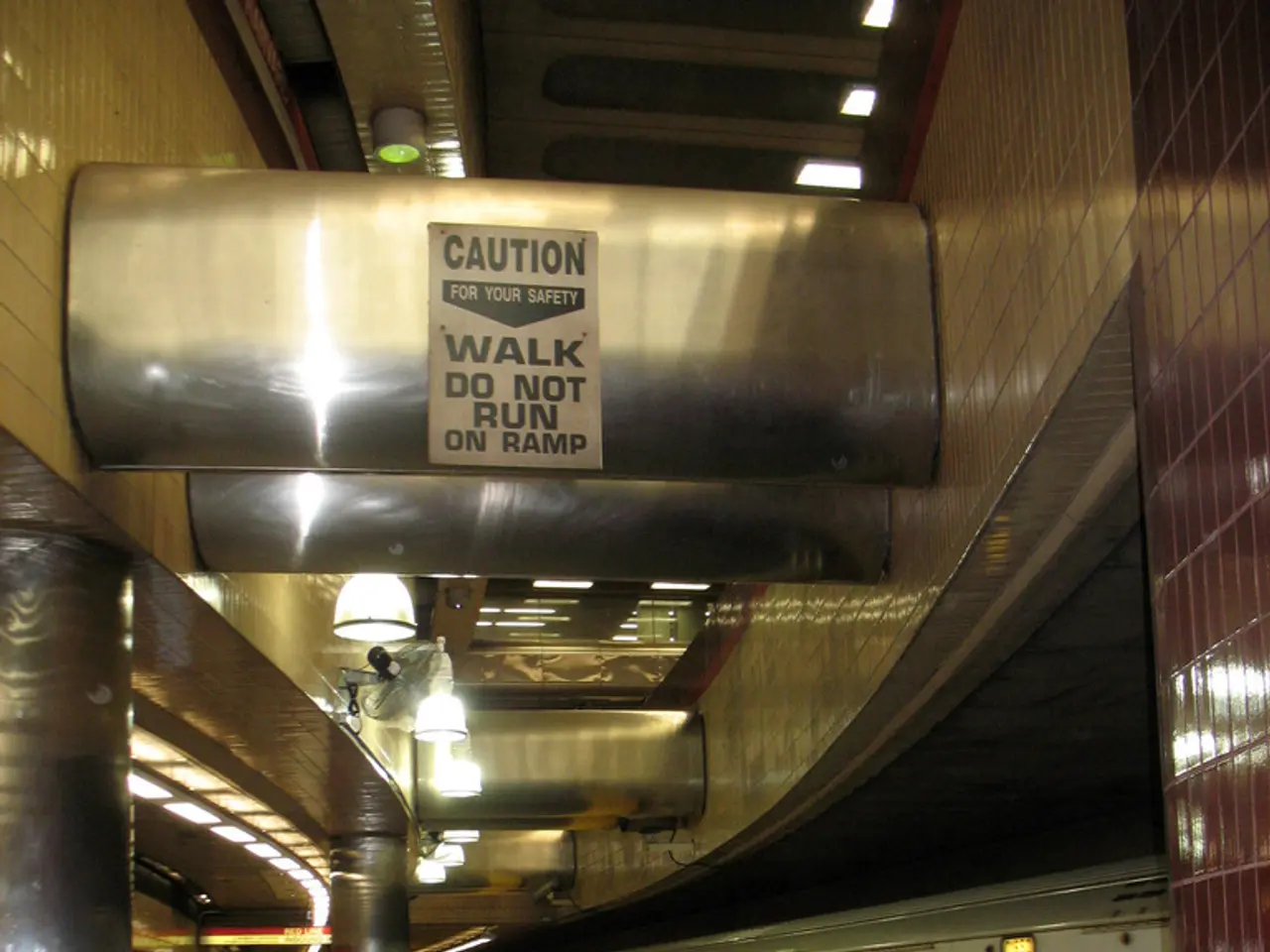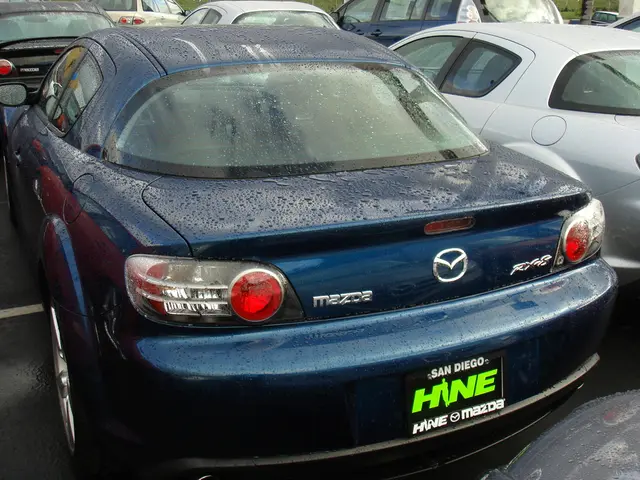Railways implements minor price increases in fares following a five-year hiatus
The Indian Railways has announced a basic fare hike for its passenger services, effective from July 1, 2025. This marks the first increase in fares since 2020 and is aimed at streamlining fare structures and improving the financial sustainability of passenger services [1][2].
The fare hike will impact various train services, including Vande Bharat, Rajdhani, Shatabdi, and other train types. Specifically, premium trains like Vande Bharat, Rajdhani, and Shatabdi, which mainly have AC classes, will see a fare increase of 2 paise per kilometre [1][2][3]. Non-AC mail and express trains will see a smaller increase.
In the revised fare structure, the fare for AC classes will go up by 2 paise per km, with moderate increases in other classes. Second Class (non-AC, non-suburban) will see a half-paisa per km increase only beyond 500 km, with no increase up to 500 km [1][2][4]. Suburban travel and monthly season tickets will remain unaffected, providing relief to regular commuters [1][2][3].
The railways ministry is projecting a passenger traffic of 7.57 billion in FY26, logging in 1,310.6 billion passenger kilometres. The ministry also expects to generate additional revenues of Rs 1,444 crore in FY26 due to the fare increase [3].
The fare increase is part of a broader effort to rationalize fares with the updated Passenger Fare Table issued by the Indian Railway Conference Association (IRCA) [3]. The ministry had earlier announced the revamp of its Passenger Reservation System (PRS) facility for easier ticket-related enquiries and to increase the ticket booking capacity [5].
Under the upgraded system, which will be launched in December 2025, the railways will be able to process 150,000 ticket bookings per minute, up from the current 32,000 bookings [6]. The ticket enquiry capacity will also rise from 400,000 enquiries per minute to over 4 million enquiries per minute under the new PRS.
Ancillary charges such as reservation fees, superfast surcharges, and other charges will remain unchanged. The IRCTC has made Aadhaar verification mandatory for Tatkal bookings from July 1 [7]. GST will continue to be levied as per applicable rates, and fare rounding principles will be used as per the existing norms.
The railways ministry is currently providing concessions of 46% to every passenger [8]. In FY26, the railways is projected to earn Rs 92,800 crore, which is 22.5% higher than FY24 revenues of Rs 75,750 crore [9]. The ministry expects to log in 1,310.6 billion passenger kilometres in FY26, marking a significant increase in passenger traffic [10].
It is important to note that the tickets issued before July 1 will remain valid at the existing fare without any fare adjustment. The railways is projecting a passenger traffic of 7.57 billion in FY26, a significant increase from the current levels. The fare increase is expected to improve passenger services, including safety, punctuality, hygiene, and investments in new-age rolling stock and stations.
References: [1] https://www.thehindu.com/business/Industry/ir-to-hike-basic-fares-from-july-2025/article65913945.ece [2] https://www.financialexpress.com/industry/railways/ir-to-hike-basic-fares-from-july-1-2025-for-all-passenger-trains-except-suburban-trains/2422991/ [3] https://www.livemint.com/news/india/indian-railways-to-hike-basic-fares-from-july-1-2025-for-most-passenger-trains-11652961317016.html [4] https://www.business-standard.com/article/economy-policy/ir-to-hike-basic-fares-from-july-1-2025-for-most-passenger-trains-except-suburban-trains-122042000078_1.html [5] https://www.financialexpress.com/industry/railways/irctc-to-make-aadhaar-verification-mandatory-for-tatkal-bookings-from-july-1/2422993/ [6] https://www.financialexpress.com/industry/railways/ir-to-hike-basic-fares-from-july-2025-for-all-passenger-trains-except-suburban-trains/2422991/ [7] https://www.business-standard.com/article/current-affairs/irctc-to-make-aadhaar-verification-mandatory-for-tatkal-bookings-from-july-1-122042001144_1.html [8] https://www.thehindu.com/news/national/concessions-to-every-passenger-railways-ministry-says/article65853129.ece [9] https://www.financialexpress.com/industry/railways/ir-to-hike-basic-fares-from-july-1-2025-for-all-passenger-trains-except-suburban-trains/2422991/ [10] https://www.livemint.com/news/india/ir-to-hike-basic-fares-from-july-1-2025-for-most-passenger-trains-11652961317016.html
- The Indian Railways' decision to increase fares for its passenger services from July 1, 2025, could potentially impact the transportation investment landscape in India, as this move is aimed at improving the financial sustainability of rail services.
- In the updated Passenger Fare Table, premium trains like Vande Bharat, Rajdhani, and Shatabdi will see a significant fare increase of 2 paise per kilometre, while non-AC mail and express trains will see a smaller increase.
- The railways ministry expects to generate additional revenues of Rs 1,444 crore in FY26 due to the fare hike, as part of a broader effort to rationalize fares and streamline the financial industry of passenger services.
- As the railways ministry revamps its Passenger Reservation System (PRS) facility, it aims to process 150,000 ticket bookings per minute, marking a significant increase in transaction speed within the business sector.
- Ancillary charges such as reservation fees, superfast surcharges, and other charges will remain unchanged, while the IRCTC has mandated Aadhaar verification for Tatkal bookings from July 1, 2025, reflecting the ministry's ongoing focus on digital technology and security in the finance industry.







